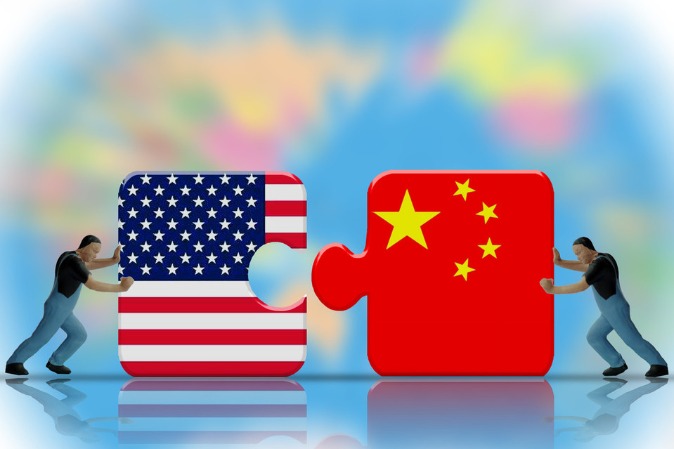Experts urge US reset on exchanges


People in the United States do not understand China as well as Chinese know the US, a situation that overseas study could help address, said US educators and researchers as they called for the Biden administration to reset the disrupted educational exchanges between the two countries.
"It's striking to me how little we know, in this country, about China," Lee Bollinger, president of Columbia University, said in an online discussion hosted on Monday by the Brookings Institution.
That is in part because US universities have not built up adequate research programs on China, so the exchanges could provide an "enormous benefit" to expand knowledge, Bollinger said at the forum, whose theme was "Do US-China educational exchanges serve American interests?"
"But it is also the case that we need to learn more about China and the rest of the world, and student-faculty exchanges are a way to do that," he added.
As both a harbinger and a victim of the soured relations between the world's top two economies, bilateral educational exchanges, long credited with having formed bonds across the Pacific, fell into limbo. This followed a depiction by FBI Director Christopher Wray in 2018 of China as a "whole-of-society threat", and a targeting of Chinese and Chinese American scientists over the past few years.
The situation has prompted US educators and researchers to consider the impact of reduced exchange programs on US knowledge about China.
Three years ago, Michael Szonyi, a professor of Chinese history at Harvard University and director of the university's Fairbank Center for Chinese Studies, said, "We might even say that just as the United States has a trade deficit with China, it also has an understanding deficit."
That disparity was highlighted at the Brookings' virtual event by panelists including J. Stapleton Roy, who was US ambassador to China from 1991 to 1995.
"Chinese now have a much better understanding of how Americans think about issues than we have about how Chinese think," said Roy, who was born in China and is now founding director and distinguished scholar at the Kissinger Institute on China and the United States.
"That's a strategic negative on our side, which educational exchanges can help to address," Roy said.
Jeffrey Lehman, vice-chancellor of New York University Shanghai, also commented on "how uninformed America is about the most important foreign country in the world right now, which is China".
"We need Americans who know more about China in all its complexity, rather than the one-dimensional stories that one can get" from mainstream media, Lehman said. "US-China educational exchanges help American students acquire that knowledge."
There were about 370,000 Chinese students enrolled in US colleges and universities in 2019, while only about 10,000 Americans travel to China each year to study, according to Lehman.
That number indicated "a terrible underdevelopment of American intellectual capital", he said.
Cheng Li, director of the John L.Thornton China Center at the Brookings Institution, said that while US President Joe Biden's executive order against the racial profiling of Asian Americans was a sound policy move, the new administration's rhetoric on cooperation is short on specifics, including on educational collaboration.
When top Chinese and US leaders launched bilateral educational exchanges in Washington in January 1979, they explicitly linked Sino-US educational exchanges to broader aspirations for world peace and regional stability, Li said.
It is time for the foreign policy community, think tanks and educational institutions to conduct "serious discourse" to address key questions regarding the exchanges, he said.
Julia Chang Bloch, president of the US-China Education Trust, who also spoke at the online event, said the US needed to understand the counterproductive nature of undoing educational exchanges, which are a pillar in US-China relations.
"The costs far outweigh (the) benefits by making Chinese students unwelcome in the US. We are just shooting ourselves in the foot," she said, adding that Biden should reset his predecessor's educational exchange policies.
































